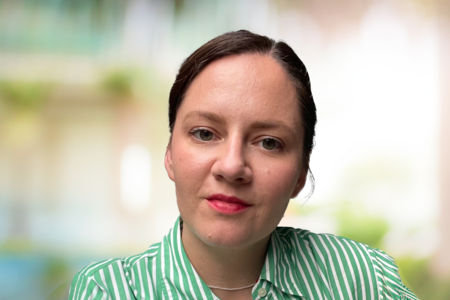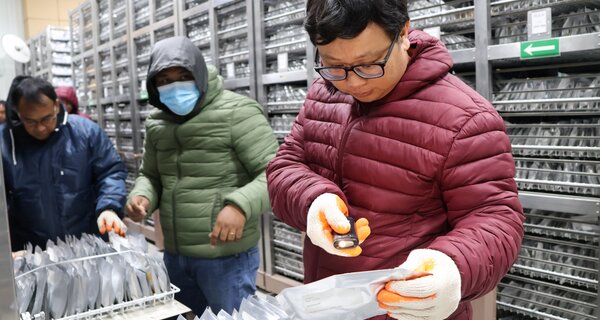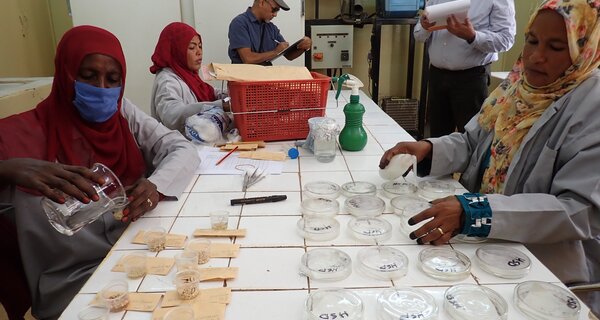The Seeds That Feed Us And the Future They Hold
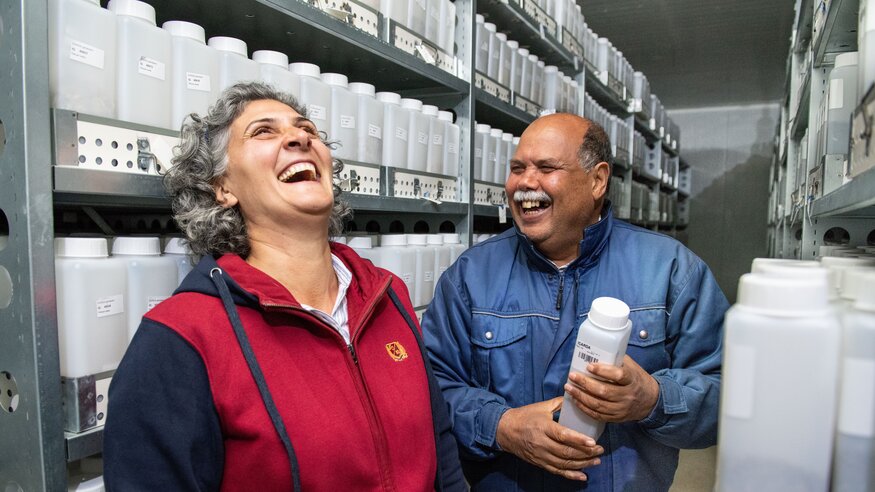
ICARDA’s Lebanon Genebank Manager, Mariana Yazbek, shares a laugh with Honorary head of ICARDA Genetic Resources Unit, Ahmed Amri at ICARDA’s genebank in Lebanon. Photo: Mike Major/Crop Trust
5 June 2025
World Environment Day is a powerful reminder that conserving biodiversity is essential not just for the health of our planet, but also for something closer to home – our food. The resilience of our food systems, the nutrition in our plates and our ability to adapt agriculture to a changing climate all depend on the biodiversity represented by collections of crop seeds. The future of our food depends on the seeds we protect today in genebanks.
Plant breeders use these seeds to help farmers grow rice suitable for flood-prone areas, vegetables that survive drought and cowpeas that are rich in protein and adapted to poor soils. This crop diversity is the foundation of sustainable food systems. It gives us choices – now and in the future.
That’s why genebanks matter. And it’s why the Crop Trust works to ensure the world’s most important genebanks can operate with confidence and stability, year after year.
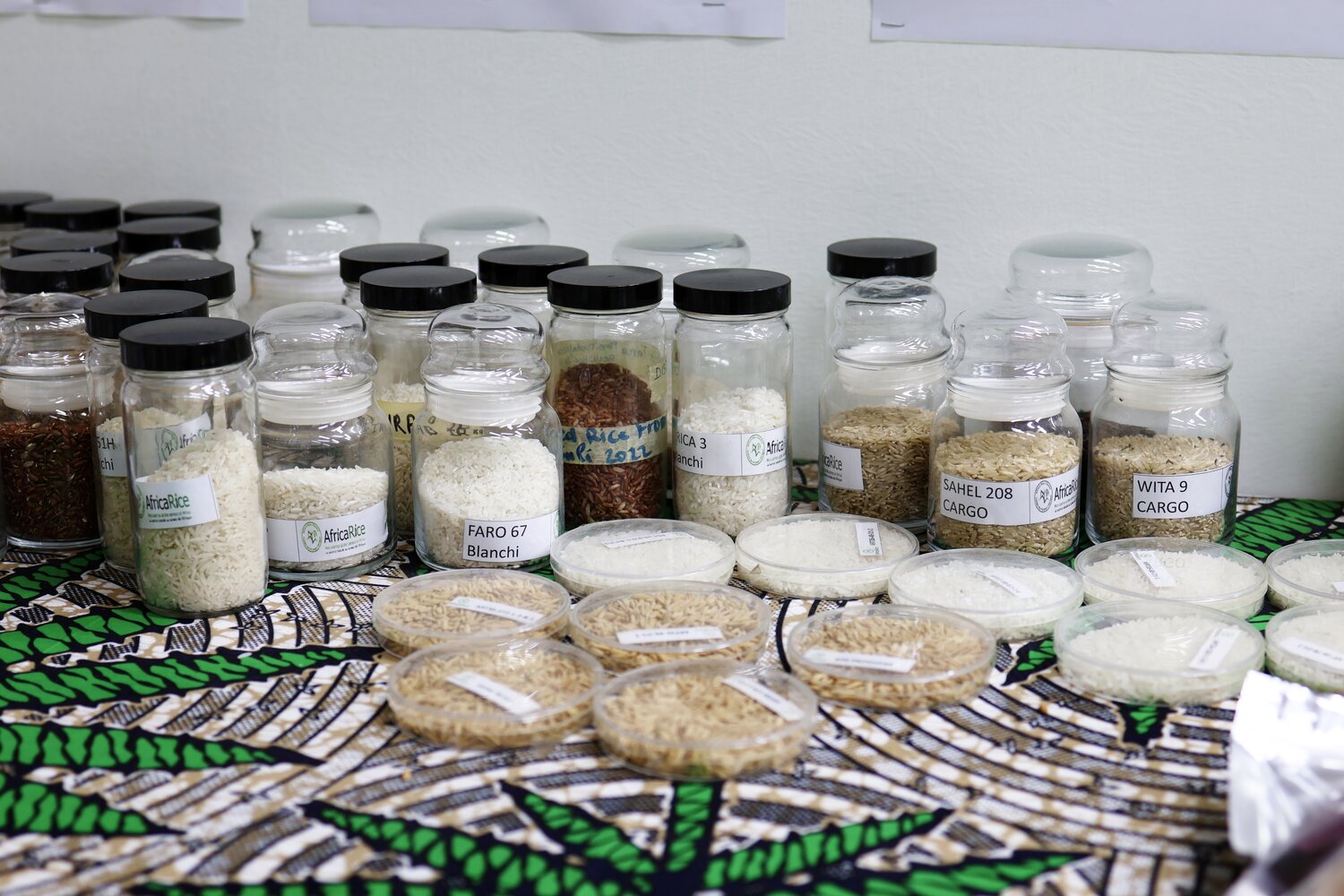
Rice diversity showcased at AfricaRice’s genebank. Photo: Shawn Landersz/CGIAR
Sustaining the Genebanks That Sustain Us
This year, the Crop Trust will provide almost 4 million US dollars to support the essential operations of several CGIAR genebanks. These centers hold some of the world’s largest collections of crop diversity, and they make an average of 90,000 seed samples available to users in more than 120 countries – every year.
Together, CGIAR genebanks manage more than 750,000 samples of crops and crop wild relatives, and a significant part of essential operations-related expenses are covered by the Crop Trust's Endowment Fund. The rest is supported by donors through CGIAR. This funding enables these facilities to keep seeds viable, available and safe from loss, forever.
IRRI’s genebank in the Philippines, for example, is home to the largest rice collection on the planet – more than 132,000 different types. From deepwater varieties to climate-smart breeding lines, this collection is essential to feed all who rely on rice, which is over half the world’s population.
The genebank of AfricaRice in Côte d’Ivoire focuses on rice as well, but more specifically the rice that is grown in Africa. Its 22,000 samples include heat- and drought-tolerant varieties, which is useful as rice becomes a staple in African diets and is grown in increasingly harsh conditions.
IITA’s genebank in Nigeria conserves 36,000 samples of African crops. This includes the world’s largest collection of cowpea – a crop that keeps people and soils healthy. Its yam and cassava collections are vital for food security in the tropics.
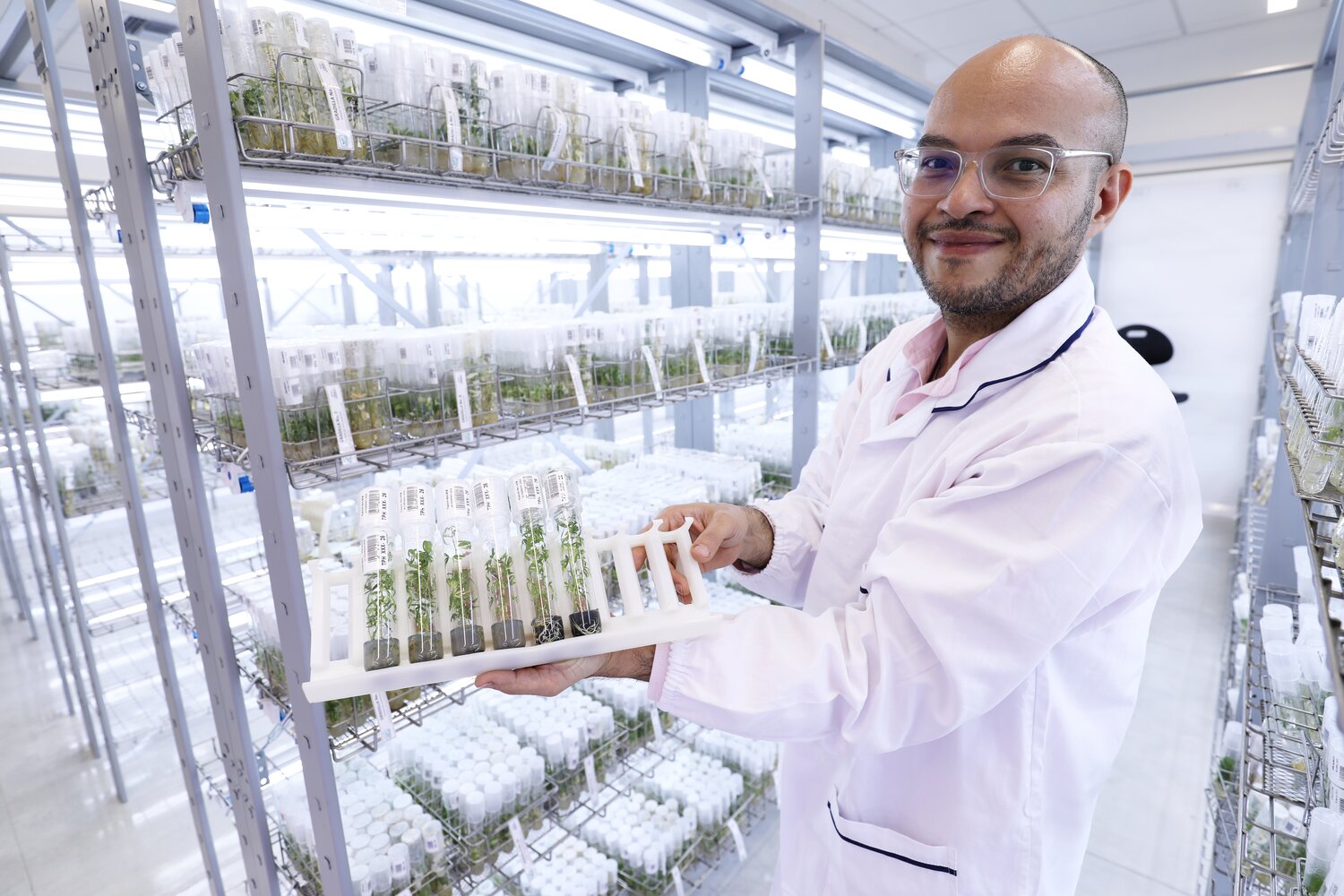
The Alliance’s genebank in Colombia. Photo: Shawn Landersz/CGIAR
Across the Atlantic, the Alliance of Bioversity International and CIAT’s Future Seeds genebank in Colombia, conserves almost 70,000 accessions of beans, cassava and tropical forages. These crops nourish people, while helping to restore soil, support sustainable livestock systems and reduce agricultural pressure on forests.
These genebanks, and others around the world, international and national, should all be celebrated on World Environment Day. They give researchers and breeders the raw materials to develop crops that use less water, require fewer chemical inputs and can withstand the challenges of a changing planet. In short, that are better for the environment while feeding us.
Strengthening the Global System of Genebanks
The CGIAR genebanks don’t just store seeds, though. They also help others do so. Recently, the Crop Trust helped connect the CGIAR genebanks with national genebanks to fortify the worldwide network of genebanks.
In Morocco, the International Center for Agricultural Research in the Dry Areas (ICARDA) hosted participants from its region to sharpen skills in viability testing, seed processing and germplasm health. In the Philippines, a two-week course by IRRI educated trainees from 11 countries on field and lab practices from seed drying and regeneration to digital data collection using tablets. In South America, national genebank staff from Ecuador and Peru improved their inventory management and operating procedures through training at the International Potato Center (CIP). Women and early-career professionals were prioritized – ensuring that tomorrow’s genebank leaders are building their skills today.
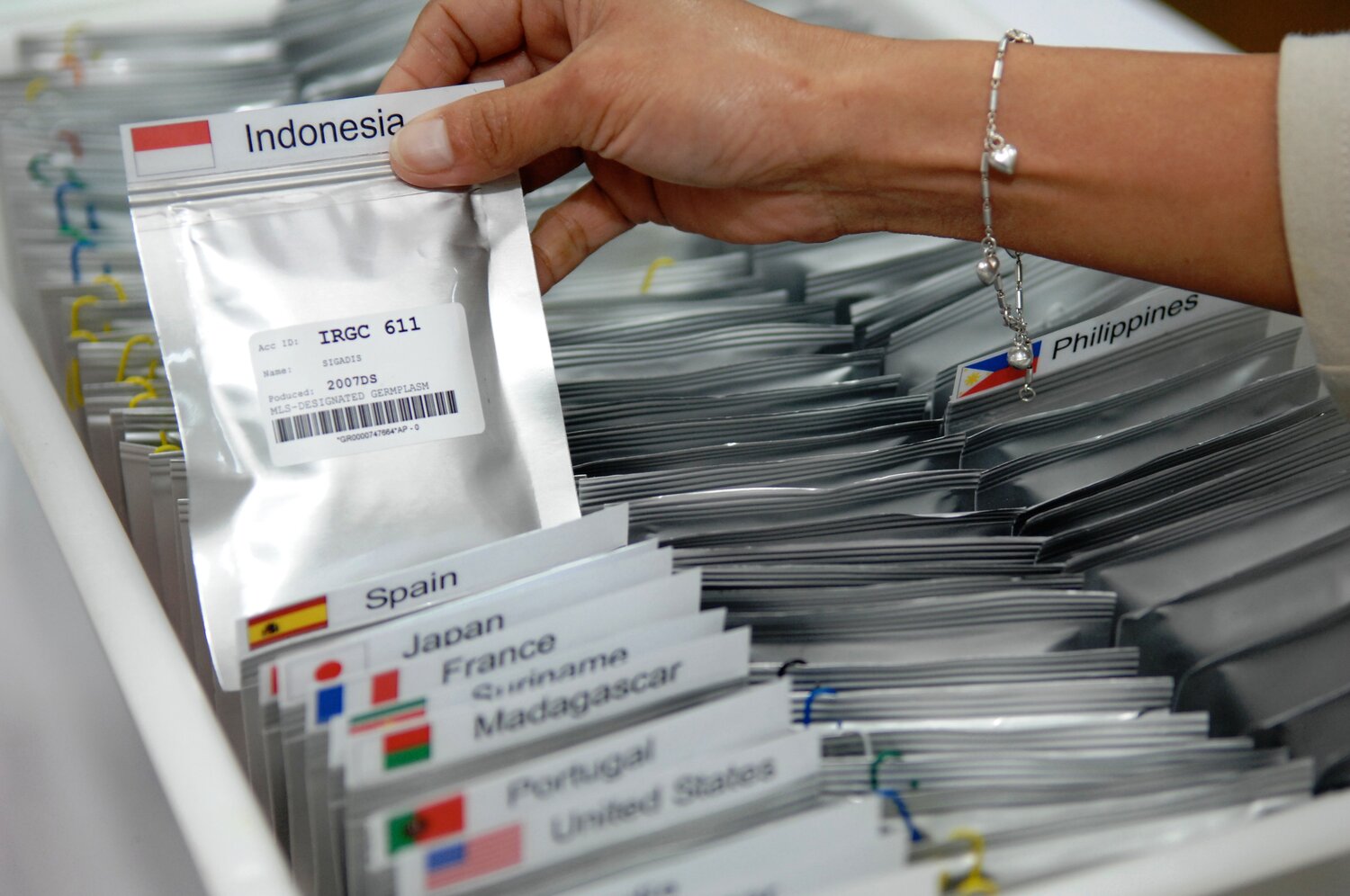
From the world, for the world: seed samples at IRRI’s genebank. Photo: Shawn Landersz/CGIAR
Why It Matters
Crop diversity may not be the first thing that comes to your mind on World Environment Day. But it does for us here at the Crop Trust. Without crop diversity, our ability to grow enough food – sustainably, nutritiously and affordably – is on shaky ground.
The Crop Trust’s mission is simple. We ensure that crop diversity remains available to those who need it, forever. By supporting genebanks through stable, long-term funding and enabling genebanks to collaborate, we help safeguard the foundation for future agriculture.
Categories: For The Press, For Partners, For Policymakers, Beans, Cassava, Cowpea, Potato, Rice, Yam, Environmental Restoration, Sustainable Agriculture

